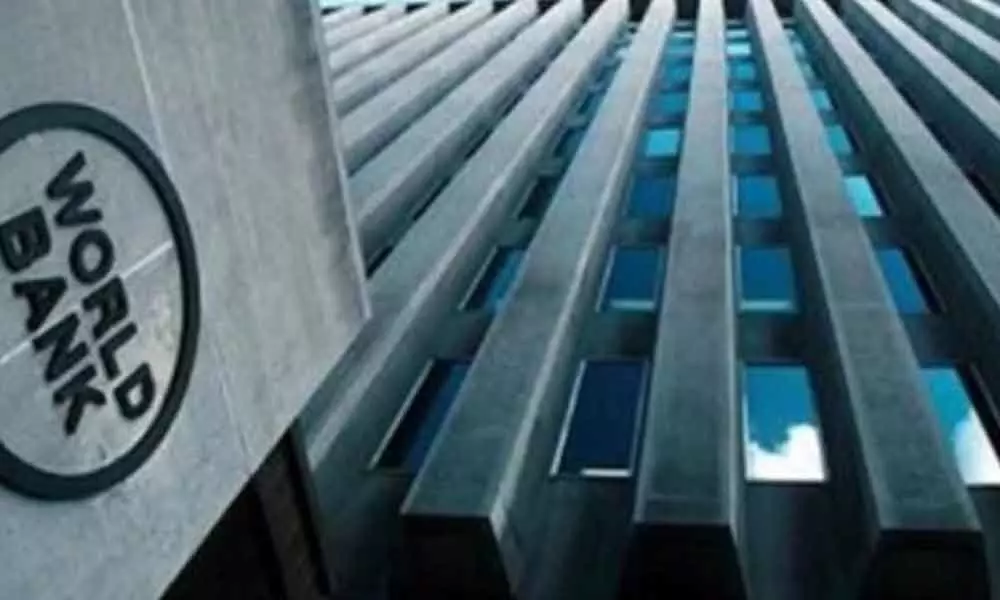Live
- First TGCHE, V-Cs meet deliberates on higher education roadmap for state
- 2 senior professors to join NALSAR
- Former Principal of SPW College passes away in US
- Hyderabad: Govt out to remove electric poles, transformers on roads across city
- KCR goes into huddle with State legal eagles
- Formula E race: KTR to be arrested soon?
- Film fraternity stands with Allu Arjun
- New CUAP campus faces security challenges
- HC grants protection to Allu Arjun from arrest
- Stampede victim’s husband ready to withdraw case against Allu Arjun
Just In
World Bank ranking does not reflect the ground realities


India has jumped 14 places to the 63rd spot in the World Bank's Ease of Doing Business Index en route to the Top 50 by 2020. In a competitive...
India has jumped 14 places to the 63rd spot in the World Bank's Ease of Doing Business Index en route to the Top 50 by 2020. In a competitive phenomenon that is sweeping the world, at least 115 economies made it easier to do business by improving their ranks over the previous years. These countries have effected 294 reforms so far.
The economies with the most notable improvement in Doing Business 2020 are Saudi Arabia, Jordan Togo, Bahrain, Tajikistan, Pakistan, Kuwait, China, India and Nigeria. However, Bahrain is one country which has improved in every area of reform, the report says. India's improved ranking is backed by four reforms - starting a business, dealing with construction permits, trading across borders and resolving insolvency.
Importing and exporting became easier with a single electronic platform for trade stakeholders, improved electronic submission methods for documents and upgrades to port infrastructure. Whatever may be the achievements of Narendra Modi government, adopting Doing Business indicators as core component and his 'Make in India' campaign helped the country improve its ranking.
All that is music - at least to the BJP ears. But, has the situation really improved in every city of India? We do not know. There is a limitation to the World Bank methodology. Its data is based on or is with reference to the largest business cities - Delhi and Mumbai.
How could this be representative of the other parts of the economy? In addition, the methodology is always confined to a specific business form which is a limited liability company or a specified size.
Could this be representative of the regulation on other business? Thirdly, India has engaged World Bank experts to suggest ways for improving the rank. Their standardised case scenario refers to a specific set of issues and may not represent the full set of issues that a business encounters. If India has improved by 14 ranks, China has improved by 15 which is quite astonishing.
Middle East and North Africa are doing fine. Saudi Arabia is a most improved economy now. Even Pakistan has improved by jumping 28 positions from 136 to 108. It is the most welcome competition among China, India and Pakistan. (What would the achievement be, if only these three turn friends and start working together in a peaceful atmosphere shunning their differences? Will there be a country that could compete with the triad?) However, the problem with such indicators and ranks is that somehow the ground situation does not reflect the improved mood.
All the three regional powers - India, Pakistan, China - face the same problems economy wise. Pakistan is down in the dumps as is known to everybody. The improved economies or the Ease of Doing Business are no consolation to the poor of these countries. It does not exactly lead to Ease of Living in these countries.
Health, education, medicare, infrastructure, amenities, livelihoods etc., are still elusive to millions of people of these countries. Disease and death stalk them and the poor quality of life is no solace.

© 2024 Hyderabad Media House Limited/The Hans India. All rights reserved. Powered by hocalwire.com






